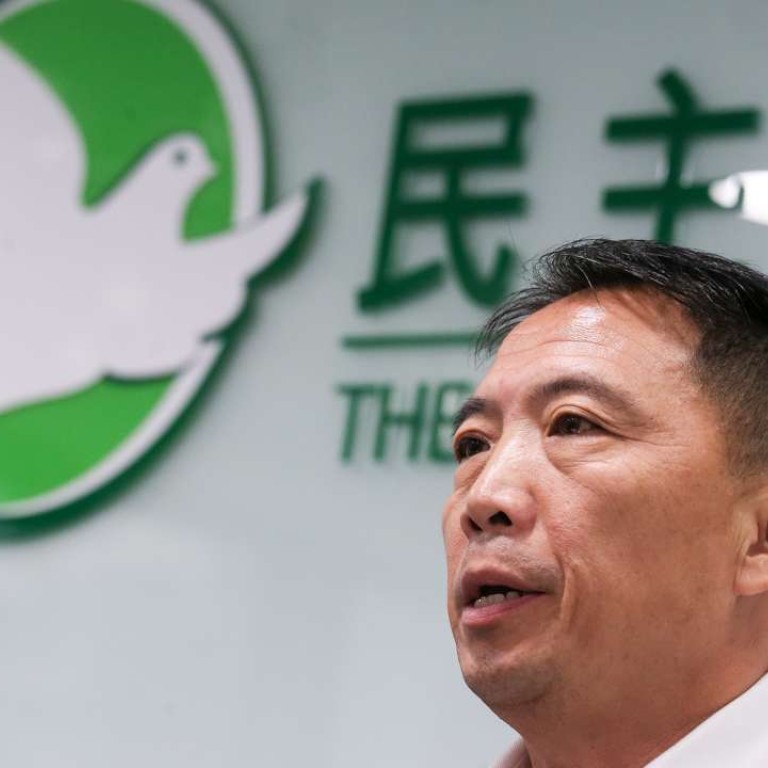
Hong Kong pan-democrats may nominate John Tsang to ensure competition in chief executive race
Democratic Party chairman says vote should be exercised in such a way that it puts a stop to current political stalemate, but other pan-democrats disagree
“The principle is we hope the race will be a competitive one,” Democratic Party chairman Wu Chi-wai said. “Our right to vote should be exercised in such a way that it would put a stop to the current political stalemate.”
Our right to vote should be exercised in such a way that it would put a stop to the current political stalemate
Unlike in the previous two elections, the pan-democrats will not nominate someone from their camp to join the race.
Asked which of the two was more likely to gain support from Democratic Party nominators, Wu said it would be the one “who will be a stronger competitor” to Lam.
That likely reference to Tsang as “the lesser of two evils” comes as Lam, the former chief secretary, fails to win praise from pan-democrats.
“She might have engaged pan-democrats when she was still development minister, but that totally changed during discussions about political reform” in 2015, Wu said.

Dennis Kwok, the legal sector lawmaker who is helping coordinate the 326 pan-democrats on the Election Committee, said the bloc was more likely to nominate Tsang or Woo, who may both be short of nominations.
For some in the pan-democratic circle, however, giving support to a pro-establishment figure like Tsang – who cited a handshake with President Xi Jinping as one of the factors driving his election bid – would amount to self-destruction.
“Once you hand over a mandate to him, you legitimise what is in essence an undemocratic system and lose your significance in politics as you allow someone to act on your behalf,” said radical pro-democracy lawmaker “Long Hair” Leung Kwok-hung.
He added: “Just look at those who have voted for US President Donald Trump. You cannot defend yourself in voting for him when he acts in a way you don’t like.”
Some of the nominators who joined politics after the Occupy campaign in 2014 echoed this concern.
“One shouldn’t have labelled oneself a supporter of democracy before the Election Committee poll [last year] and a kingmaker now,” said Alfred Wong Yam-hong of the medical sector. “This is pure dishonesty.”
He also questioned why some in his camp would regard the current race as competitive.

